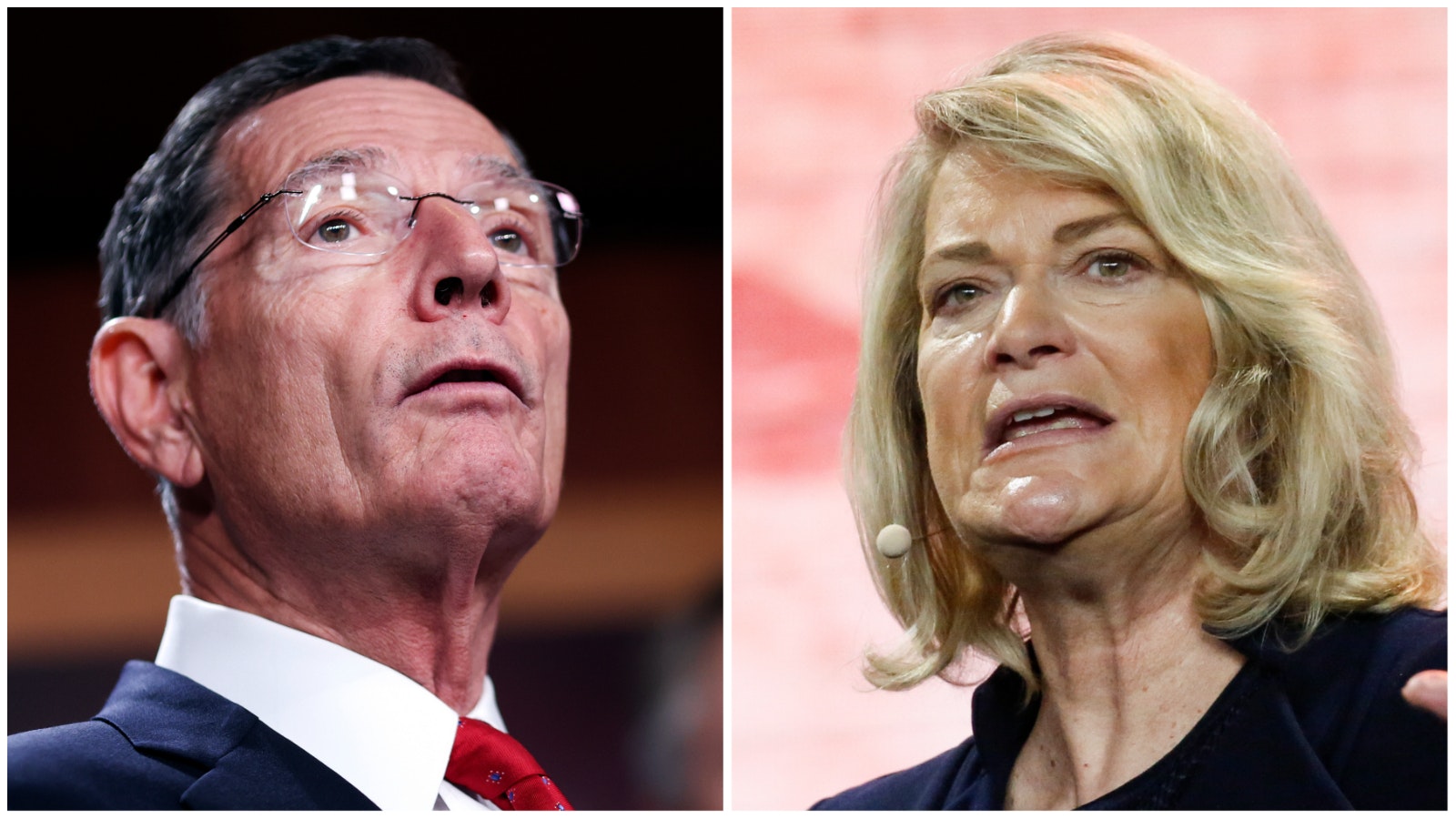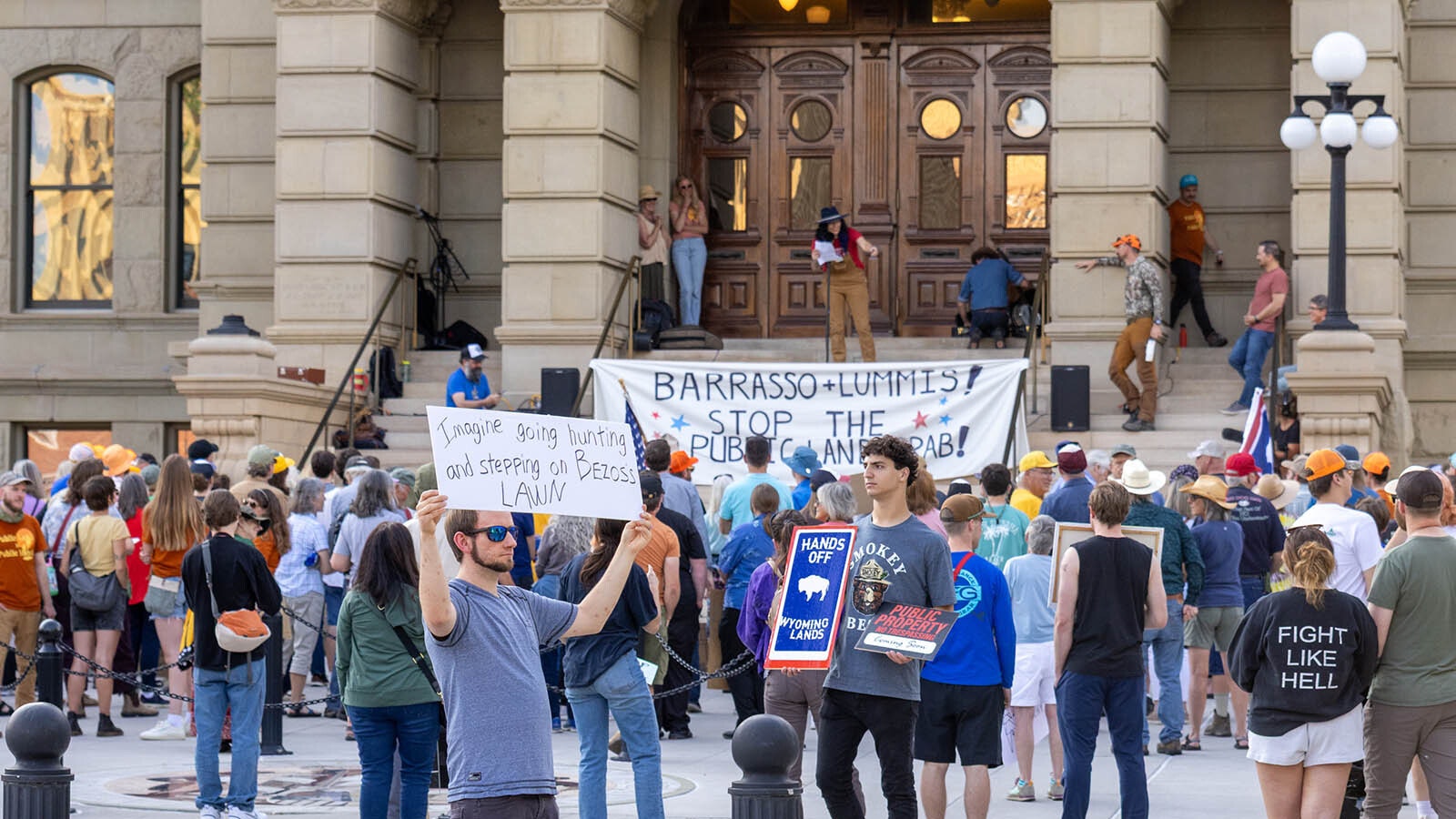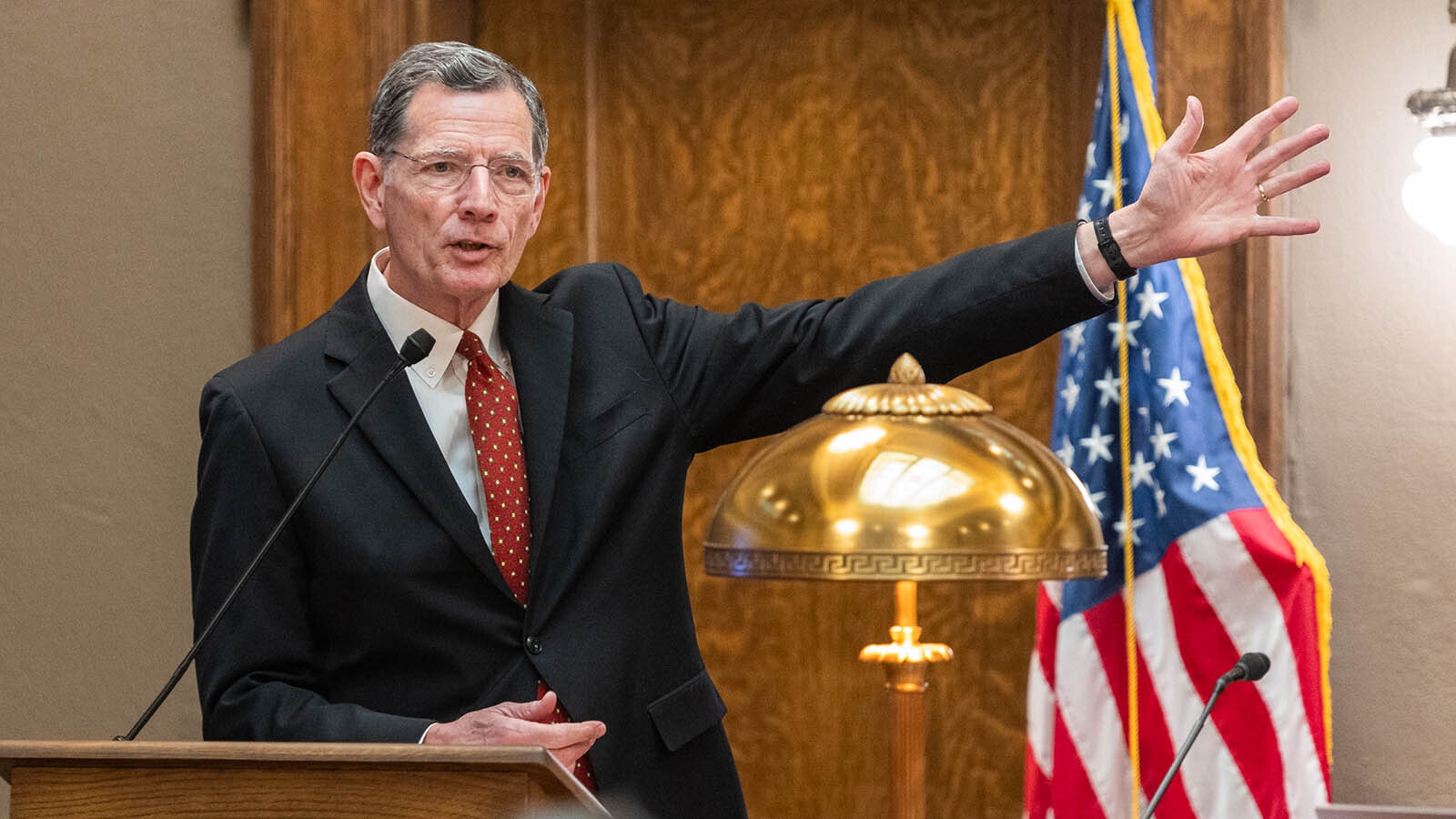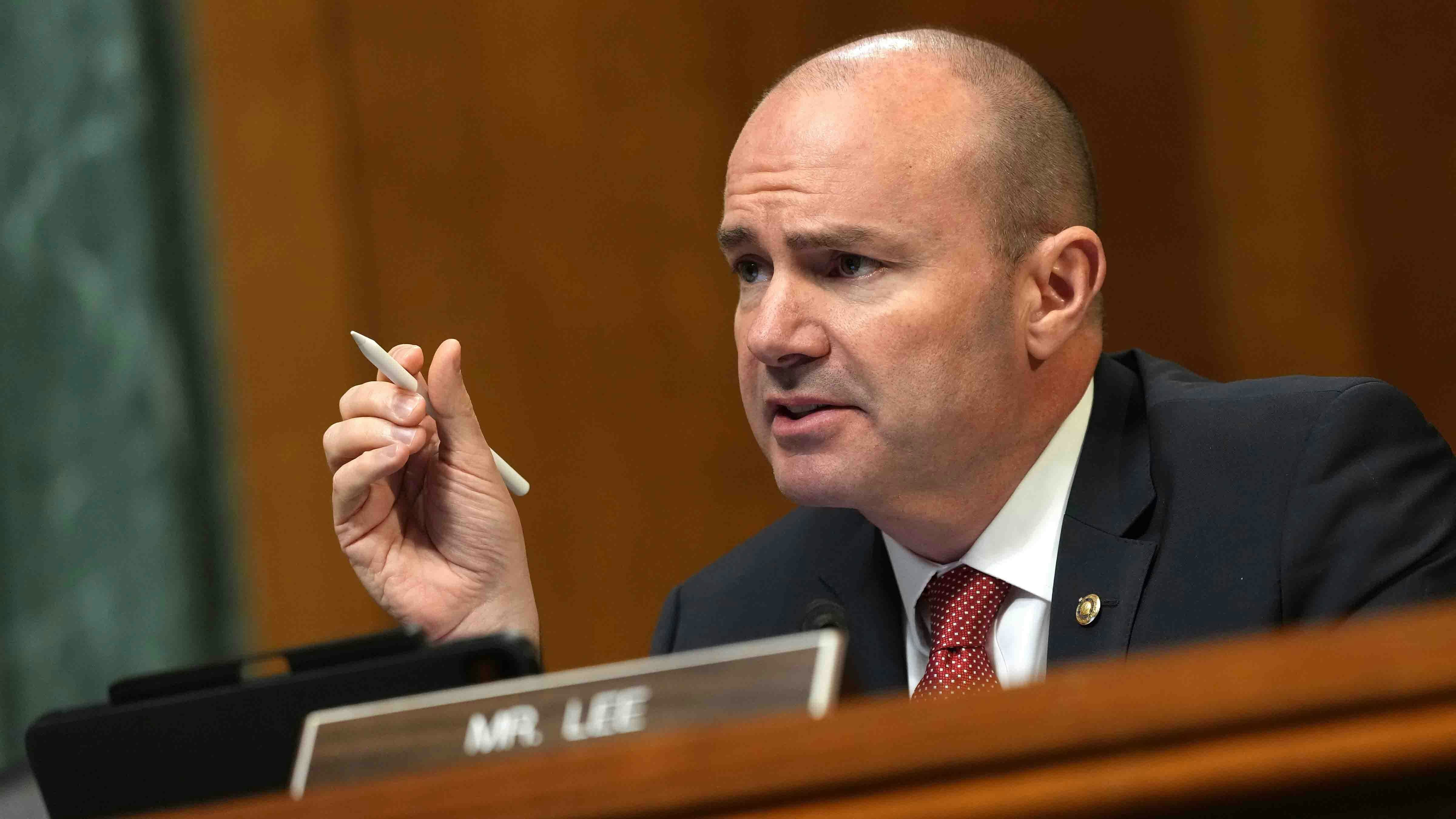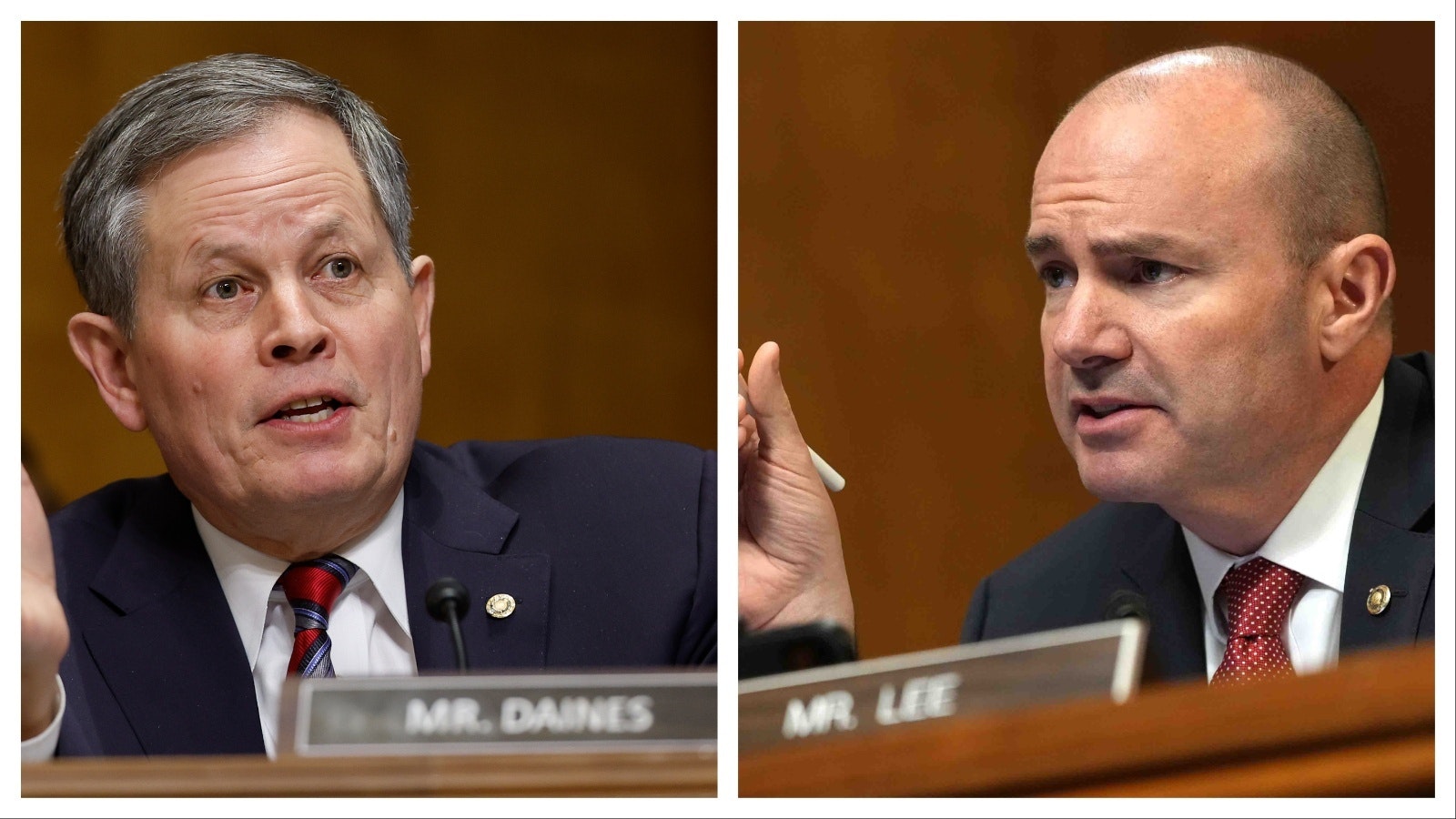By Leo Wolfson, State Politics Reporter
Leo@Cowboystatedaily.com
U.S. Sen. Cynthia Lummis voted Wednesday in support of a federal same-sex marriage bill.
Lummis’ “aye” to move forward with the Respect for Marriage Act, legislation that would protect marriage equality under federal law, showed the first-term Wyoming senator is at least considering supporting the bill.
Specifically, Lummis voted to end discussion and take a vote on the bill, clearing its tallest hurdle.
“Marriage is a deeply personal issue, and I have listened carefully to individuals across Wyoming to hear their perspective on this matter,” the Wyoming Republican said in a Thursday statement.
“Ultimately, my decision to proceed on this bill was guided by two things – the Wyoming Constitution and ensuring religious liberties for all citizens and faith-based organizations were protected. Equality is enshrined in the Wyoming constitution,” she said.
No GOP Filibuster
The Senate advanced the bill by a 62-37 margin, surpassing by two votes the threshold to avoid a Republican filibuster, which would have nixed any further consideration of the bill.
Lummis was one of 12 Republicans to support discussion of the bill.
Her vote of support came as pleasant news for LGBTQ advocacy group Wyoming Equality.
“We applaud Sen. Lummis’ vote to advance the Respect for Marriage Act,” said Sara Burlingame, executive director of Wyoming Equality. “The senator showed the world what Wyoming values are. She fought hard for the First Amendment rights of churches and faith institutions to be upheld, and advocated for fairness and equality.”
H.R. 8404 would prohibit any state from refusing to recognize an out-of-state marriage based on sex, race, ethnicity or national origin, regardless of individual state laws. It also would grant the U.S. attorney general authority to enforce the rule through civil action.
Split With Barrasso
Voting against considering the bill was Sen. John Barrasso, R-Wyoming.
“Sen. Barrasso believes that marriage is between a man and a woman,” a spokeswoman for Barrasso told Cowboy State Daily on Thursday morning. “That’s the way he voted in the Wyoming state Senate and that’s where he stands today.”
It’s the second time in less than a week that Barrasso and Lummis have been on opposite sides of an issue.
Last week, Lummis said she wanted Republican senators to delay voting for their leadership until after the Georgia U.S. Senate runoff election race is completed. Barrasso, as chairman of the Senate Republican Conference, denied a request made by Republican Sens. Rick Scott of Florida, Mike Lee of Utah and Ron Johnson of Wisconsin to delay the elections.
U.S. Rep. Liz Cheney, R-Wyoming, surprised many this summer when she was one of 47 Republicans who voted to support the House version of the Respect for Marriage Act. Cheney had spoken against same-sex marriage in 2013, an issue that led to a public spat with her sister, who is married to a woman.
“I think it’s very important that in the wake of Justice (Clarence) Thomas’ opinion, in the most recent Supreme Court case, which raised the prospect that we could see the constitutional protections for gay marriage be overturned,” Cheney told Cowboy State Daily in August. “I felt it was very important that we make sure we were going to codify those protections.”
Lummis was booed at a University of Wyoming graduation this spring for saying that “even fundamental scientific truths, such as the existence of two sexes, male and female, are subject to challenge these days.”
Procedures
Now all that is needed to pass the law is a majority vote from the U.S. Senate, then the amended version of the bill would return to the House for another vote. President Joe Biden has said he will sign the bill into law if it comes to his desk.
The Senate’s is a little different from the House version, adding protections for religious freedom. This clarifies that nonprofit religious organizations wouldn’t be required to provide “services, facilities or goods” for a marriage that’s against an organization’s beliefs.
“Striking a balance that protects fundamental religious beliefs with individual liberties was the intent of our forefathers in the U.S. Constitutio,n and I believe the Respect for Marriage Act reflects this balance,” Lummis said.
Mormon Shift On Issue
In a surprising reversal of stance, The Church of Jesus Christ of Latter-day Saints came out Tuesday in support of the legislation and the religious freedom amendment.
The Respect for Marriage Act came in response to the U.S. Supreme Court’s reversal of Roe v. Wade this summer, which had previously codified a woman’s right to abortion services in federal law. In his decision on that matter, Justice Thomas indicated that the court “should reconsider” precedents enshrining marriage equality and access to contraception.
The bill also would fully repeal the Defense of Marriage Act, a 1996 law signed by then-President Bill Clinton that defined marriage as being the union of a man and a woman.
Where Does Wyoming Stand?
The Supreme Court weakened the Defense of Marriage Act in 2013 and two years later ruled that the Constitution guarantees same-sex marriage rights.
In the years following that decision, A Gallup poll shows Americans’ support for same-sex marriage has increased by 11%, with more than seven of every 10 Americans now in favor of making same-sex marriage a legal right. This is up from 27% support in 1996.
A 2014 Pew Research poll showed that 79% of Wyoming residents believe same-sex marriage should be accepted. There are three openly gay members in the Wyoming Legislature.
The Wyoming Constitution establishes in Article I, Section III, that, “Since equality in the enjoyment of natural and civil rights is only made sure through political equality, the laws of this state affecting the political rights and privileges of its citizens shall be without distinction of race, color, sex, or any circumstance or condition whatsoever other than individual incompetency, or unworthiness duly ascertained by a court of competent jurisdiction.”
Lummis said she believes her support of the bill reflects that.
“As a Christian and a conservative, ensuring that the religious liberties of people in Wyoming are protected and that no institution would be forced to perform a ceremony that is not in line with their values is absolutely essential,” Lummis said.
A June Politico/Morning Consult poll found 51% of Republicans oppose the legislation. The Wyoming Republican Party has crafted resolutions that define marriage as being a union between a man and a woman and has complained that sexual orientation has become a prevalent issue in America.
Certain Republican legislators have balked at the bill, with Sen. John Cornyn, R-Texas, describing it as a political stunt by Democrats, and Sen. Marco Rubio, R-Florida, saying this summer that he knows “plenty of gay people” in Florida who are more concerned with gas prices.
Wyoming Equality indicated on its Facebook page on Tuesday night that Lummis also is receiving pushback for her decision.
“We believe that Senator Lummis may cast an essential vote for this bill to pass in the next two days, but she is currently receiving overwhelming negative responses from Wyoming,” the group posted Wednesday night, imploring people to send Lummis messages of support for her vote. As of Thursday morning, 32 people posted on Facebook that they had done this.
The New York Times reports that a vote in the Senate on the bill is expected after Thanksgiving.

